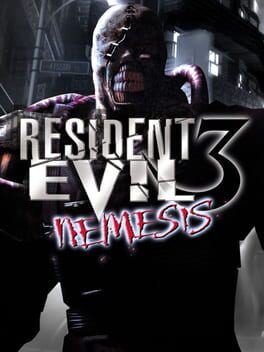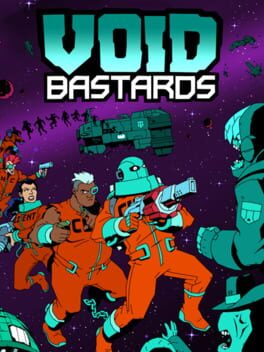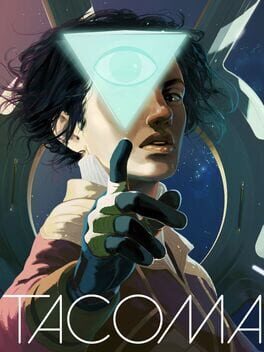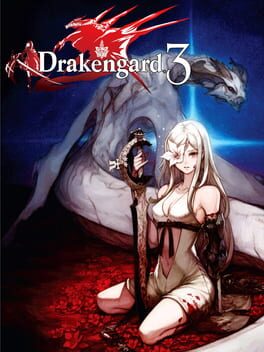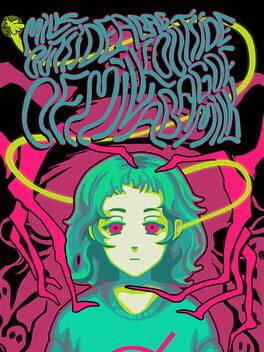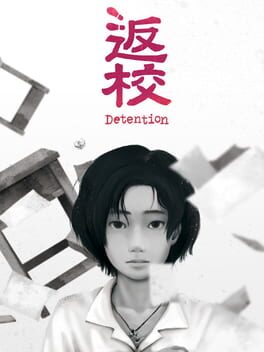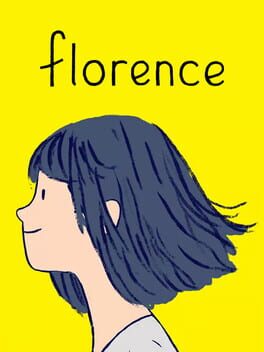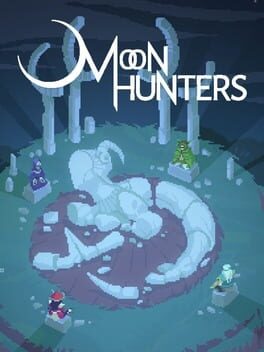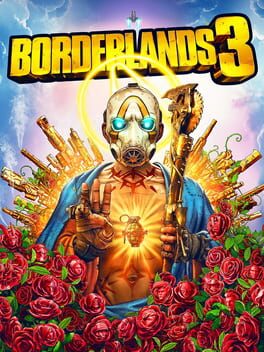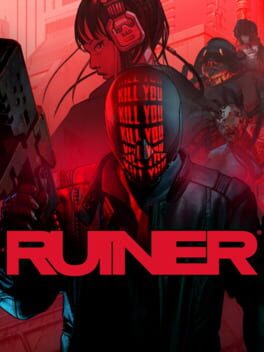Chowder
Imported from my Backloggery:
I really wanted to like this game, but I really didn't like the action focus mixed with tank controls. It felt less like a power fantasy, and more felt disengaging. I didn't love the aesthetic of the beginning, a post apocalyptic city mixed with PS1 graphics just didn't work for me. I really was missing the spooky atmosphere. I also didn't love the pure quantity of enemies and found myself more annoyed than scared most of the time. I enjoyed the few Nemesis encounters and campy vibe though.
I really wanted to like this game, but I really didn't like the action focus mixed with tank controls. It felt less like a power fantasy, and more felt disengaging. I didn't love the aesthetic of the beginning, a post apocalyptic city mixed with PS1 graphics just didn't work for me. I really was missing the spooky atmosphere. I also didn't love the pure quantity of enemies and found myself more annoyed than scared most of the time. I enjoyed the few Nemesis encounters and campy vibe though.
2019
Imported from my Backloggery:
It's really hard for me to rate this game because I started out enjoying the graphics and presentation, but found the gameplay to just be so-so. I would have seen this game out to completion if it wasn't for the invulnerable enemies that incentivized the entirely unenjoyable stealth. This game also has a really great sense of humor that kept me laughing, but it was ultimately not fun to play, especially as the game got harder.
It's really hard for me to rate this game because I started out enjoying the graphics and presentation, but found the gameplay to just be so-so. I would have seen this game out to completion if it wasn't for the invulnerable enemies that incentivized the entirely unenjoyable stealth. This game also has a really great sense of humor that kept me laughing, but it was ultimately not fun to play, especially as the game got harder.
2017
Imported from my Backloggery:
I enjoyed what I played of Tacoma for the most part, the narrative was interesting for the most part, and some the implications that existed in the story were interesting, and quite dark. The theme and story they were telling was singular, but Tacoma lacked one huge part of the experience, which was involvement. You don't affect anything, you are a passive observer, which deflated a lot of it for me. Most of the narrative was told to you, which bothered me. I also lost my save.
I enjoyed what I played of Tacoma for the most part, the narrative was interesting for the most part, and some the implications that existed in the story were interesting, and quite dark. The theme and story they were telling was singular, but Tacoma lacked one huge part of the experience, which was involvement. You don't affect anything, you are a passive observer, which deflated a lot of it for me. Most of the narrative was told to you, which bothered me. I also lost my save.
2013
Imported from my Backloggery:
I thoroughly enjoyed DKG3. It's rife with hype-ass moments and some killer music, which allows for some really incredible action sequences. The combat was serviceable, offering some visceral fun and primal enjoyment via the progression system (which beautifully ties into the narrative). The story is the main attraction though, a lot of characters are more nuanced than they initially let on, and the plot ties so well with the rest of the series. It's just begging to be analyzed.
DLC:
Though largely superfluous, there are still some nice stories to be found in these DLCs. Two's DLC really stood out to me for that, her descent into madness is well done, and uses the anime art style to push your suspension of disbelief as far as it will go. The rest of them weren't Earth-shattering, but they are some nice context. I just wish playing these in Japanese wasn't such a pain to do.
I thoroughly enjoyed DKG3. It's rife with hype-ass moments and some killer music, which allows for some really incredible action sequences. The combat was serviceable, offering some visceral fun and primal enjoyment via the progression system (which beautifully ties into the narrative). The story is the main attraction though, a lot of characters are more nuanced than they initially let on, and the plot ties so well with the rest of the series. It's just begging to be analyzed.
DLC:
Though largely superfluous, there are still some nice stories to be found in these DLCs. Two's DLC really stood out to me for that, her descent into madness is well done, and uses the anime art style to push your suspension of disbelief as far as it will go. The rest of them weren't Earth-shattering, but they are some nice context. I just wish playing these in Japanese wasn't such a pain to do.
2007
Despite being enjoyable, I feel as though Portal has lost a lot of the impact that it may have had in the past. Because Portal permeates the cultural zeitgeist, I feel as though I have seen and absorbed a lot of this game via cultural osmosis. The novelty of the portal gun has worn due to my familiarity with pieces due to Portal 2, and I feel as though the humor and writing isn't as striking as it may have been in the past. Although I did chuckle at points, I found some of the humor to be somewhat tedious and uninspired due to it being copied later on from games like Borderlands 2 and Cyberpunk. It is still fun, but not necessarily a must play, even if it is an important part of gaming history.
1999
Imported from my Backloggery: (Bad+ Ending)
While I was playing, I found it hard not to compare SH to Resident Evil. In comparison, this game wasn't even close. The puzzles were backloaded toward the end of the game, which I found to be really tedious. When it came to combat and level design, it wasn't to the same standard as RE1. Where SH did stand out however was the visual direction. There were some really clever scares, and I really enjoyed the way the story was told. There are some fun things, but it didn't compare to RE.
While I was playing, I found it hard not to compare SH to Resident Evil. In comparison, this game wasn't even close. The puzzles were backloaded toward the end of the game, which I found to be really tedious. When it came to combat and level design, it wasn't to the same standard as RE1. Where SH did stand out however was the visual direction. There were some really clever scares, and I really enjoyed the way the story was told. There are some fun things, but it didn't compare to RE.
2020
This review contains spoilers
Paradise Killer was such a big surprise for me. I went in expecting a solid indie game with decent writing and got so much more than that. The worldbuilding is definitely the thing that stands out more than anything else in this experience. It's obvious that everything was so well thought out and that they had a strong internal source book to keep everything consistent. Because of this, it was so easy for me to stay engaged and become invested in the underlying mystery. Having two avenues of knowledge (the murder mystery and the larger world) kept me super engaged. In addition, the characters were simple yet fantastic, each and every one of them were engaging in their own way, and I found myself caring for Akiko more than I care to admit by the end. The ending also hit me way harder than I expected it to. Having to execute those who I ended up calling my friends for the sake of 'justice' was as heartbreaking as it was shocking. The other thing that stuck out to me about the ending was that nothing actually ended up changing about the system by the end. The system is still being upheld, and the slave labor that Paradise is built on will still be perpetuated and continued. Although simple, this game does have a lot to say, which I really appreciated. It was cool that the so-called V A P O R W A V E A E S T H E T I C (despite it not really feeling very vaporwave, just vaporwave adjacent) fed into the anti-authority narrative as well. The only complaint I really have with the game is the janky collection gameplay. A large portion of this game is about exploration, which I apprecate, the only issue is that a lot of exploration is thrust upon you via collectibles. Although it was fun for a while, This fell apart in two ways for me. There was one point where I felt stuck, I had to explore the island, essentially tidying up the entire map to the point where there were no collectibles in my viscinity. This took about an hour and a half, and I found it to be quite tedious. Also, it's hard to find all of the evidence on your own due to meditation not showing any of the important stuff to you. Despite that, Paradise Killer remains one of my favorites I've played in a while.
2010
Alan Wake to me offered a hollow, vapid experience that reeked of 7th console generation design. Although the combat was generally pretty fun, with its snappy flow and quick pace, the story was never enough to keep me interested. The characters and tone are all over the place, never being able to decide if it wants to take itself seriously or not. It attempts to emulate Twin Peaks in that way, but ultimately fails. In many ways it feels like a different CBS show, something safe and made for cable that will register as inoffensive to the people its beamed to. It does redeem itself in the later half by playing with some interesting ideas and concepts, but it never leaned into that hard enough to redeem it for me.
Although not as kinetic or strong as the first game, Milk2 is still phenomenal, offering an experience that is scary, honest and authentic. For something that is meant to be played multiple times, I found the framing device of the room to be an element that stopped multiple playthroughs rather than encouraging it. Overall, I think this game effectively captures and clearly communicates what it's like to be stuck in a swirling, spiraling, confusing mess, and I'm happy I could listen.
2017
Not much to say about this one that hasn't already been said more eloquently by others. Detention is a great story about censorship, conformity and self-determination set in the backdrop of 1960s Taiwan. For me, I found detention to be deeply affecting and emotional. There were certain sections that caused me to feel a dip pit in my stomach that didn't subside until my play session ended. There are also some fascinating setpeices and wonderful use of ambiguity throughout. My only issue lies with the gameplay. Although it isn't the focus, I found a lot of the exploration and 'stealth' sections to be a little boring and tedious. They weren't super long, so it functioned as a nice excuse to sit with the atmosphere for a little longer, which I appreciated. I'm happy that because of this game, I'm now learning about the history of Taiwan and the White Scare. Detention will definitely be sticking with me for a long time.
2018
This review contains spoilers
Florence did a really great job with experimenting with different ways to turn emotional experiences to gameplay with flying colors. It's strange how satisfying a lot of the little minigames were, and how much they felt really meaningful, things like decorating your house, and the conversation puzzle pieces. It was really impressive to me. The music also worked really well in conjunction with the art, and I definitely felt what they were going for. I think this could be iterated on really well in the future and told in a better fleshed out story.
The story of Florence is solid, but I feel as though it could be better. I feel like the whole thing ends quite unceremoniously, with the two breaking up after arguing only a little bit and not really working together to patch things up. It's really unfortunate, but I also think the brevity of the game worked to its advantage.
It's quite impressive and left a reasonable impact on me but I think it had potential to be more. It lacked a true gut punch emotional resonance that I look for from a game like this.
The story of Florence is solid, but I feel as though it could be better. I feel like the whole thing ends quite unceremoniously, with the two breaking up after arguing only a little bit and not really working together to patch things up. It's really unfortunate, but I also think the brevity of the game worked to its advantage.
It's quite impressive and left a reasonable impact on me but I think it had potential to be more. It lacked a true gut punch emotional resonance that I look for from a game like this.
2016
I ended up playing this game with my best friend, and had a decent enough time to start, it was fun making choices with a friend, and being able to make group choices and choices of your own. I really enjoyed that aspect, but it felt like the game never really delivered on its promises.
For how many times the game wants you to play it, I expected the narrative to vary in some real way, but it felt like you were simply working to change the final outcome. I wish there were more 'bad' endings, in your attempts to change it, but it never really felt like you have real control over how the game turns out, which is disappointing. The skill checks were fun, but they don't flesh it out enough to make it rewarding.
My other problem came down to the characters and the combat. I feel like the balance in the game was all over the place, with some characters being WAY stronger than others, and all the characters I wanted to play were significantly weaker than the one my friend was playing. The combat and feel of characters was not great, with you being consistently locked in place when attacking. The button inputs also just felt very unresponsive at times, which was disappointing. I wanted to play the bard really bad, but she just felt so weak and janky to play.
It was fun at first, but the lack of balance and meaningful storytelling made it fall short.
For how many times the game wants you to play it, I expected the narrative to vary in some real way, but it felt like you were simply working to change the final outcome. I wish there were more 'bad' endings, in your attempts to change it, but it never really felt like you have real control over how the game turns out, which is disappointing. The skill checks were fun, but they don't flesh it out enough to make it rewarding.
My other problem came down to the characters and the combat. I feel like the balance in the game was all over the place, with some characters being WAY stronger than others, and all the characters I wanted to play were significantly weaker than the one my friend was playing. The combat and feel of characters was not great, with you being consistently locked in place when attacking. The button inputs also just felt very unresponsive at times, which was disappointing. I wanted to play the bard really bad, but she just felt so weak and janky to play.
It was fun at first, but the lack of balance and meaningful storytelling made it fall short.
2019
Imported from my Backloggery account:
This game is fun gameplay-wise, but nothing beyond that. The story has a few heartfelt moments, but fails to really stick the landing overall. The villains are lackluster and downright annoying. The gameplay is serviceable and fun, but nothing beyond that. In addition, the sheer amount of talking makes the game less fun to play through multiple times, and kept me from keeping on with the game. The core gameplay loop is fun, but the rest of the game bogs it down.
Beaten: Oct 2019 in 60 hours
This game is fun gameplay-wise, but nothing beyond that. The story has a few heartfelt moments, but fails to really stick the landing overall. The villains are lackluster and downright annoying. The gameplay is serviceable and fun, but nothing beyond that. In addition, the sheer amount of talking makes the game less fun to play through multiple times, and kept me from keeping on with the game. The core gameplay loop is fun, but the rest of the game bogs it down.
Beaten: Oct 2019 in 60 hours
2020
Imported from my Backloggery:
Despite having an initially gripping setup, characters, and truly immersive world, the game ultimately failed to bring any sort of meaningful emotional payoff for the story. Overall, I never got much out of the game beyond 'woah, this is cool'. Some SQs were great, but most were lackluster. The gameplay is rather lacking in replay value and meaningful roleplaying and decision making as well. The combat beyond the many ways you can tackle an encounter is nothing to write home about.
Despite having an initially gripping setup, characters, and truly immersive world, the game ultimately failed to bring any sort of meaningful emotional payoff for the story. Overall, I never got much out of the game beyond 'woah, this is cool'. Some SQs were great, but most were lackluster. The gameplay is rather lacking in replay value and meaningful roleplaying and decision making as well. The combat beyond the many ways you can tackle an encounter is nothing to write home about.
2017
Imported from my Backloggery:
RUINER was an interesting one... The thing that I loved most about this game was the pacing, throughout the game, there was little to no exposition, they just said 'go' which made this feel much less boring than it could be. The combat was so dry, however. Switching guns throughout combat encounters keeps you on your toes, but it just ended up feeling like Hotline Miami but with less strategy. I loved the worldbuilding and the art direction, but the 3D was rough. The 2D stuff was cool though.
RUINER was an interesting one... The thing that I loved most about this game was the pacing, throughout the game, there was little to no exposition, they just said 'go' which made this feel much less boring than it could be. The combat was so dry, however. Switching guns throughout combat encounters keeps you on your toes, but it just ended up feeling like Hotline Miami but with less strategy. I loved the worldbuilding and the art direction, but the 3D was rough. The 2D stuff was cool though.
